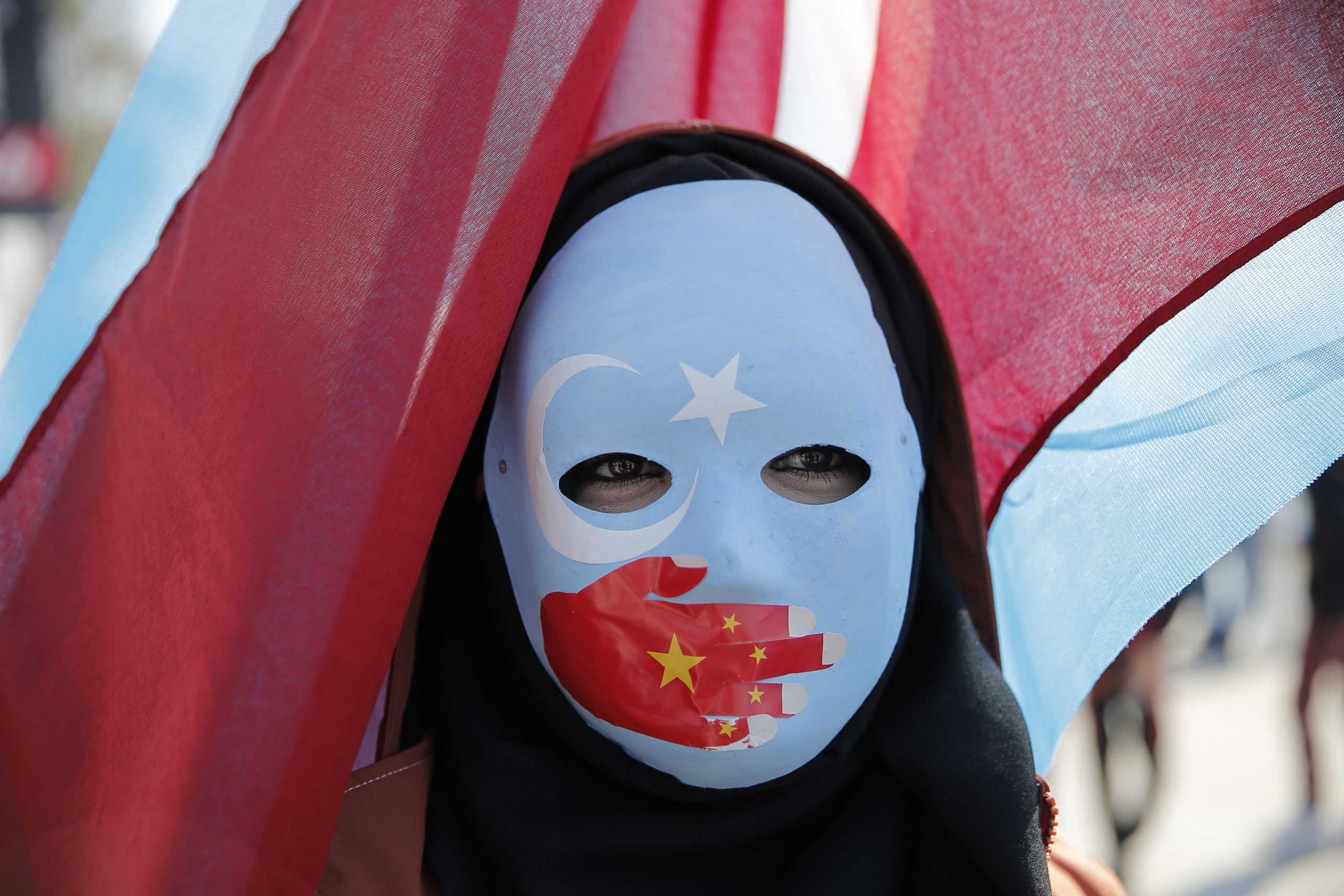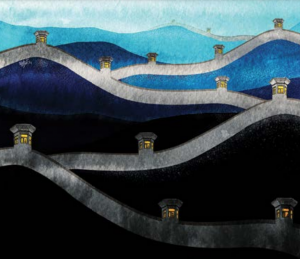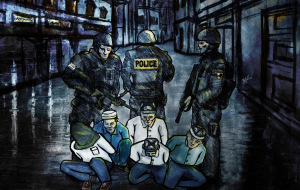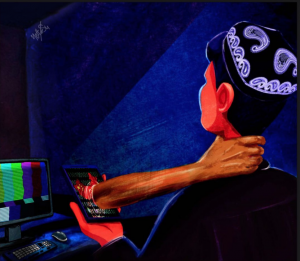The War on the Uyghurs
Sean Roberts, The War on the Uyghurs, (Princeton NJ: Princeton University Press, 2020).
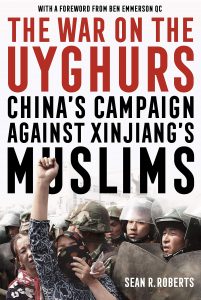 Sean Roberts’ The War on the Uyghurs provides a timely and thorough background for the world’s most pressing atrocity. Roberts’ analysis is wide-ranging, balanced, and rich in historical detail, helping to orient the reader amid an ever-expanding corpus of harrowing reports of China’s ongoing campaign against its Uyghur minority. By the end of the book’s 250 pages, Roberts gives a clear view into the origins and ultimate aims of the Chinese government’s ruthless attempt to eliminate the Uyghur identity—not only through headline-grabbing “reeducation camps,” but also through a broad range of policies with roots in a long history of Chinese colonial oppression.
Sean Roberts’ The War on the Uyghurs provides a timely and thorough background for the world’s most pressing atrocity. Roberts’ analysis is wide-ranging, balanced, and rich in historical detail, helping to orient the reader amid an ever-expanding corpus of harrowing reports of China’s ongoing campaign against its Uyghur minority. By the end of the book’s 250 pages, Roberts gives a clear view into the origins and ultimate aims of the Chinese government’s ruthless attempt to eliminate the Uyghur identity—not only through headline-grabbing “reeducation camps,” but also through a broad range of policies with roots in a long history of Chinese colonial oppression.
Roberts’ study of the war on the Uyghurs—an ethnic group obscure to most audiences until their cultural genocide began to come to light in 2017—benefits from the scholar’s three full decades of prior study, stretching back to his first visit to the Uyghur homeland in 1990. As an associate professor of George Washington University’s Elliott School of International Affairs and Director of its International Development Studies program, Roberts is well-positioned to bring academic rigor and a notably broader perspective to the present situation than is represented in much of the recent literature on the topic. Roberts’ vantage point is particularly useful for those seeking a more comparative perspective of how the Chinese state’s actions since 2017 relates to the PRC’s approach to the Xinjiang Uyghur Autonomous Region (XUAR) in earlier decades of Communist rule.
In this vein, Roberts’ most compelling arguments set the record straight on two misleading narratives related to contemporary Uyghurs. First, in contrast to much of the prevailing scholarship, Roberts gives an assessment of China’s rule over the Uyghur homeland as an unambiguous exercise in colonization. Roberts relates how the Qing Dynasty subdued and indirectly administered the contemporary XUAR as a “frontier colony” by leeching off its population, setting a similar trajectory for the KMT’s nationalist regime and the initial decades of the PRC. Beginning in the 1980s, Roberts recounts the CCP’s slow transition to a “settler colony” model as Communist leadership sought to integrate the region more thoroughly into the politics, culture, and economics of the Chinese party-state through increasingly aggressive methods. Through this lens, what we are witnessing today is the most violent stage of China’s colonial project.
The second narrative that Roberts tackles is that of Uyghurs as an Islamist terrorist threat. Chapters 3 and 4 of The War on the Uyghurs meticulously chronicle the stories behind purported Uyghur terrorist activities and organizations in extraordinary detail—cutting through the misguided commentary of supposed terrorist experts that exacerbated the Uyghurs’ mischaracterization. Roberts convincingly argues that the major incidents of violence involving Uyghurs in the PRC were overwhelmingly not the result of any organized efforts of Islamist groups—which were too marginal and ill-equipped to do much of anything—but the grassroots manifestations of a population pushing back against escalating colonial repression. Ironically, the most violent years of the XUAR were functionally provoked by the PRC’s invasive hunt for an Islamic radicalism that was never really a threat. The CCP produced “a self-fulfilling prophecy of Uyghur militancy” that has justified and intensified its efforts to bring the Uyghur homeland to heel.
Both of Roberts’ correctives are well-researched and much-needed as the international community reckons with China’s heinous actions in XUAR. Nonetheless, Roberts weakens his argument by stretching his rebuttal of Uyghur terrorist accusations to support a wide-ranging critique of the Global War on Terror (GWOT). By Roberts’ estimation, China’s “terrorist” label for Uyghurs was not just an abused term that served as window dressing for China’s colonial ambitions; instead, America’s ill-advised fixation on broadly-defined ‘counter-terrorism’ actively paved the way for China’s more aggressive approach to Uyghur repression. Indeed, according to Roberts, the “ideology” of the GWOT “largely facilitated” a return to the type of cultural genocide currently occurring in Xinjiang (p. 6). The claim is tenuous, contentious, and extraneous to the otherwise robust arguments of the book. China’s actions towards the Uyghurs may well have employed GWOT terms in a ‘biopolitical’ manner, as Robert’s points out, but the extent to which these terms or a GWOT paradigm more broadly had actual causal power is unknowable. Given the PRC’s long history of abusing terms, such as ‘re-education,’ it is doubtful that a more Foucault-friendly definition of terrorism, as Roberts suggests, would have appreciably influenced China’s actions, which likely have much stronger roots in Chinese civilizing narratives and hyper-nationalism than in GWOT discourse.
More helpful context could have included greater discussion of other historical precedents for China’s expansionist impulses in its dynastic history, or comparison with the PRC’s brutal conquest of Tibet, which received only cursory attention. As General Secretary Xi Jinping continues to cite a colonialism-induced ‘century of humiliation’ as justification for China’s aggressive policies, discussion of the PRC’s broader subjugation of unwilling populations in Tibet, Taiwan, and beyond would be a valuable addition to Roberts’ analysis of CCP colonization of the Uyghur homeland.
Despite these shortcomings, Roberts’ The War on the Uyghurs is an excellent resource for anyone seeking to understand the PRC’s crimes against the Uyghurs in a way that is comprehensive, concise, and readable. Roberts has risen to the considerable challenge of explaining how China’s atrocities against the Uyghur people have emerged and continue to operate. He concludes, in turn, with a challenge for his readers to push for stronger support for ailing Uyghur communities. We would do well to heed Roberts’ call.
Bill Drexel is a Research Assistant at the American Enterprise Institute. Previously, he was a 2018-2019 Schwarzman Scholar, during which time he studied Chinese state surveillance in Beijing’s Tsinghua University.

